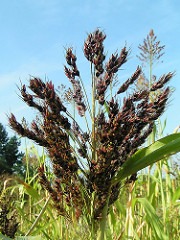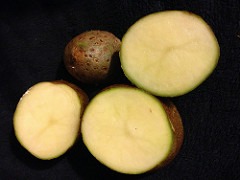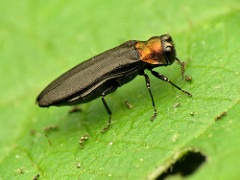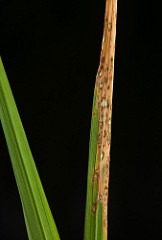
GM/Biotech Crops Report – April 2018
3rd April 2018- GM/Biotech Crops Monthly Reports (BELOW) form part of BCPC’s free three-tier Biotech Crops Info service.
- This service also includes a weekly round-up of news from around the globe – see BCPC Newslink GM Crops section.
- Plus – Free access database on over 300 GM/biotech products covering 23 crops in the global market visit BCPC’s GM/Biotech Crops Manual – Register here for free access.
Already registered? Click here
GM/Biotech Crops Monthly Report April 2018
 |
How to triple the number of sorghum grains Sorghum has two types of flower – one that produces grains and one that does not. Researchers at Cold spring Harbour Laboratory have found a simple genetic modification that allows both types of flower to produce grains. They don’t say if it actually increases yield but do say that a similar increase in grain numbers might also be possible in wheat, maize and rice. More Pic: Peter Hanegraaf |
|---|---|
| GM Sugarcane in Brazil
One reason for the reticence of British Sugar to embrace GM sugarbeet was the fear that it might cause big sugar buyers to switch to sugarcane. Brazil is now starting to grow and process sugarcane engineered to be resistant to cane borer and so this worry is removed. Will GM sugar beet soon be grown in the UK like it is in America? More Pic Source: Rom |
 |
 |
Tobacco for healthy living
Tobacco is the cause of many lung cancers but now researchers in Spain are modifying the tobacco plant to use it as a biofactory for the production of many different health-promoting substances such as vaccines and anti-inflammatory agents. The RUVID website gives details but only in Spanish. More Pic: Lex |
| Switching on ‘silenced’ genes
Not all genes in a genome are active. Now a team at UGA has found that by introducing a human gene into Arabidopsis they can selectively switch on these silenced genes, making possible a greater diversity of biotypes than was previously possible. One has to ask why natural selection switched them off in the first place? More Pic Source: Andrey Huff |
 |
 |
Safer potatoes
Everyone knows that green potatoes are poisonous but now a team at Kobi University in Japan has used CRISPR-Cas9 editing to knock out the gene that causes the production of steroidal glycoalkaloids. This causes an increase in the accumulation steroidal saponins which are apparently valued by the pharmaceutical industry. More Pic: Vicky Vinch |
| More on GM Sugarcane
Building on the cane borer resistance mentioned above, Monsanto has produced a Stacked Trait that adds glyphosate tolerance to this insect resistance (i) while researchers at the University of Punjab in Pakistan are developing transgenic sugarcane that is resistant to sugarcane mosaic virus (ii). (i) More (ii) And More Pic: Katja Schulz |
 |
 |
Why some weeds quickly develop resistance to glyphosate
Chromosomes are not the only DNA in town! The weed Palmer amaranth also has genes that have escaped the chromosomes and formed separate self-replicating circular DNA structures. These structures contain versions of the gene blocked by glyphosate but, because there are hundreds of these structures in each cell, it is easier for the cell to overcome the effects of the glyphosate. More Pic: University of Delaware |
| Golden Rice at last!
Golden Rice, which helps overcome vitamin A deficiencies in rice-based diets and thus alleviate blindness, has long been cited as a benefit of GM technology. Now, finally, it is being grown in Canada, Australia and New Zealand where its health benefits are less relevant. More Source: Jon Higgins |
 |
 |
Tomatoes that fight hypertension
According to WHO, 30% of the world population is suffering from hypertension. Splicing a gene from Amaranth into tomatoes has resulted in a plant that produces amarantin, a protein with similar therapeutic effects to captopril which is currently used to treat hypertension. The next step is to test the engineered tomatoes on humans suffering from hypertension. The following website gives details but only in Spanish. More |
| . |
| Isolation of Rice Blast
Rice blast is a fungal disease that is claimed to destroy 30% of the world’s annual rice crop. Once inside a cell it spreads throughout the plant via the plant’s intercellular channels but a team led by Exeter University has found that inhibiting a single protein in traps the disease in the infected cell and stops it spreading throughout the rice plant. More Source: USDA |
. |
 |
Beer without hops
Growing hops requires a lot of land, fertiliser and water but hops are essential in the production of beer. Now a team at Berkeley University in California have engineered brewer’s yeast to produce the flavour components normally derived from hops. More Pic Source: Hans Splinter |
THE LATEST ADDITIONS TO THE GM/BIOTECH DATABASE ARE:
- KK179 x J101 – Alfalfa with tolerance of glyphosate and modified lignin content approved for food use in South Korea
- FG72 x A5547-127 – Soybean with glyphosate, glufosinate and isoxaflutole herbicide tolerance approved for food, feed and environmental use in Argentina.
- 5307 x MIR604 x Bt11 x TC1507 x GA21 x MIR162 – Maize with tolerance of glyphosate and glufosinate and with resistance to Coleopteran and lepidopteran insects approved for food, feed and environmental use in Argentina.
- MON89034 x TC1507 x NK603 x DAS40278 – Maize with Lepidopteran insect resistance and tolerance of glyphosate, glufosinate and 2,4-D approved for food, feed and environment use in Argentina, food and feed use in Canada and environment use in Japan.
- 5307 – Maize with multiple insect resistances – approved for food use in Singapore and food, feed and environment use in Brazil.
- FG72 – Soybean with glyphosate and isoxaflutole herbicide tolerance approved for food use in Columbia, Food and feed use in Russian Federation and for food use in Singapore.
- New Transformation Event – Golden Rice (Provitamin A fortified rice) approved for food use in Australia, Canada and New Zealand.
- DP305423 – soybean with modified oil content and sulfonyl urea herbicide tolerance approved for food, feed and environment use in Brazil.
- DP305423 x GTS 40-3-2 – soybean with modified oil content, glyphosate tolerance and sulfonyl urea herbicide tolerance approved for food, feed and environment use in Brazil.
- MON87751 x MON87701 x MON87708 x MON89788 – soybean with Lepidopteran insect resistance and tolerance of glyphosate and dicamba herbicides approved for food, feed and environment use in Brazil.
FOR INSTANT ACCESS TO GM BIOTECH MANUAL CLICK HERE (Registration required)
Already Registered? Click here to access

